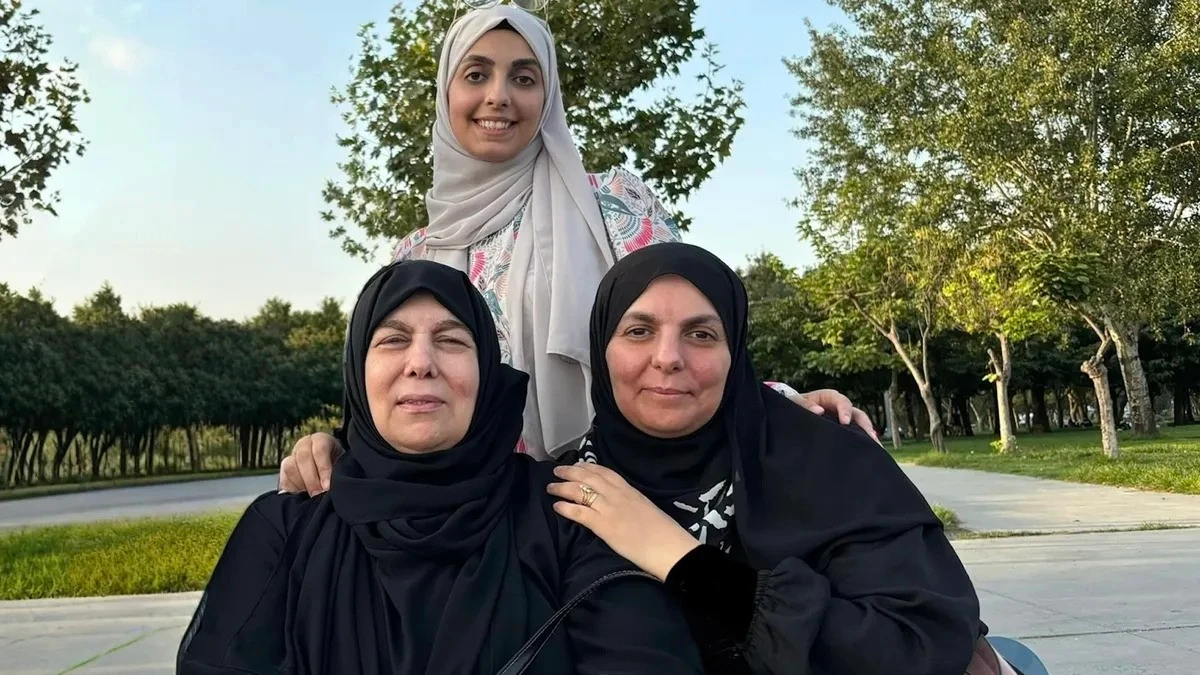Study finds trauma leaves genetic scars across generations in Syrian families
 A survivor of the 1982 Hama massacre (left) with her daughter and granddaughter, who participated in a study on the biological inheritance of trauma, United States, Mar. 13, 2025. (Courtesy of Live Science)
A survivor of the 1982 Hama massacre (left) with her daughter and granddaughter, who participated in a study on the biological inheritance of trauma, United States, Mar. 13, 2025. (Courtesy of Live Science)
A new study has found that traumatic experiences can leave genetic marks that persist for generations.
Researchers studying three generations of Syrian families exposed to war-related violence identified distinct epigenetic changes linked to trauma.
The findings contribute to a growing body of evidence suggesting that stress and hardship can alter gene expression without changing the DNA sequence itself.
The study, published in Scientific Reports on Feb. 27, was led by a team of international researchers, including molecular biologist Rana Dajani from Hashemite University in Jordan, anthropologist Catherine Panter-Brick from Yale University, and epigeneticist Connie Mulligan from the University of Florida.
The team analyzed DNA samples from Syrian families affected by the 1982 Hama massacre and the Syrian conflict that began in 2011. Their goal was to determine whether the effects of trauma could be traced at the genetic level across multiple generations.

How does trauma alter gene expression across generations of Syrian families?
Researchers have found that trauma can leave genetic marks that persist for generations of Syrian families.
Here’s what they discovered:
- Epigenetics and trauma: Chemical modifications to DNA can change gene activity without altering the DNA sequence. These modifications can be influenced by stress and trauma.
- The study: Researchers examined 131 participants from 48 Syrian families, comparing those exposed to war with families who left Syria before the conflicts.
- Sample collection: Cheek-swab samples were taken from grandmothers who were pregnant during the 1982 Hama massacre, their daughters, and granddaughters. A similar approach was used for families affected by the 2011 conflict.
- Key findings:
- Trauma left epigenetic marks at 35 specific genome sites.
- 21 changes were unique to individuals directly exposed to violence.
- 14 changes were found in the grandchildren of women who experienced trauma while pregnant.
- Most affected genetic sites showed similar epigenetic patterns, indicating a consistent biological response to stress.

War-linked trauma associated with accelerated biological aging in children of Syrian families
One of the study’s key findings was the observation of accelerated epigenetic aging in children exposed to trauma in the womb. This means their biological markers suggested they were older than their actual chronological age.
Such changes have been linked to increased risks of health problems, but researchers have not yet determined whether these epigenetic alterations cause health issues or merely reflect them.
“What it seems to say is that there might be a common epigenetic signature of violence across generations, exposures, and developmental stages,” epigeneticist Connie Mulligan told Live Science.
The researchers noted that, while their study provides strong evidence for intergenerational epigenetic transmission, the findings should be validated with larger sample sizes. The biological consequences of these genetic marks remain uncertain, and further research is needed to understand their role in human health.

How does trauma impact human health and adaptation?
Molecular biologist Rana Dajani emphasized studies like this one on Syrian families can change how societies view the long-term effects of trauma. “We can use this framing to go from victimhood and vulnerability to agency and adaptability,” she said.
The research on Syrian families suggests epigenetic mechanisms may help future generations adapt to challenging environments.
Anthropologist Catherine Panter-Brick described the study as “pure joy” for the research team and an important step in understanding how humans respond to stress and hardship.
This is an example of how we can work together for the benefit of humanity by understanding more about the challenges that humans repeatedly find themselves in when they face different kinds of violence.
Catherine Panter-Brick
Researchers hope to uncover ways to mitigate the long-term effects of war and violence on future generations by exploring the relationship between trauma and epigenetics. The findings could also contribute to discussions on humanitarian policies and support systems for communities affected by conflict.



